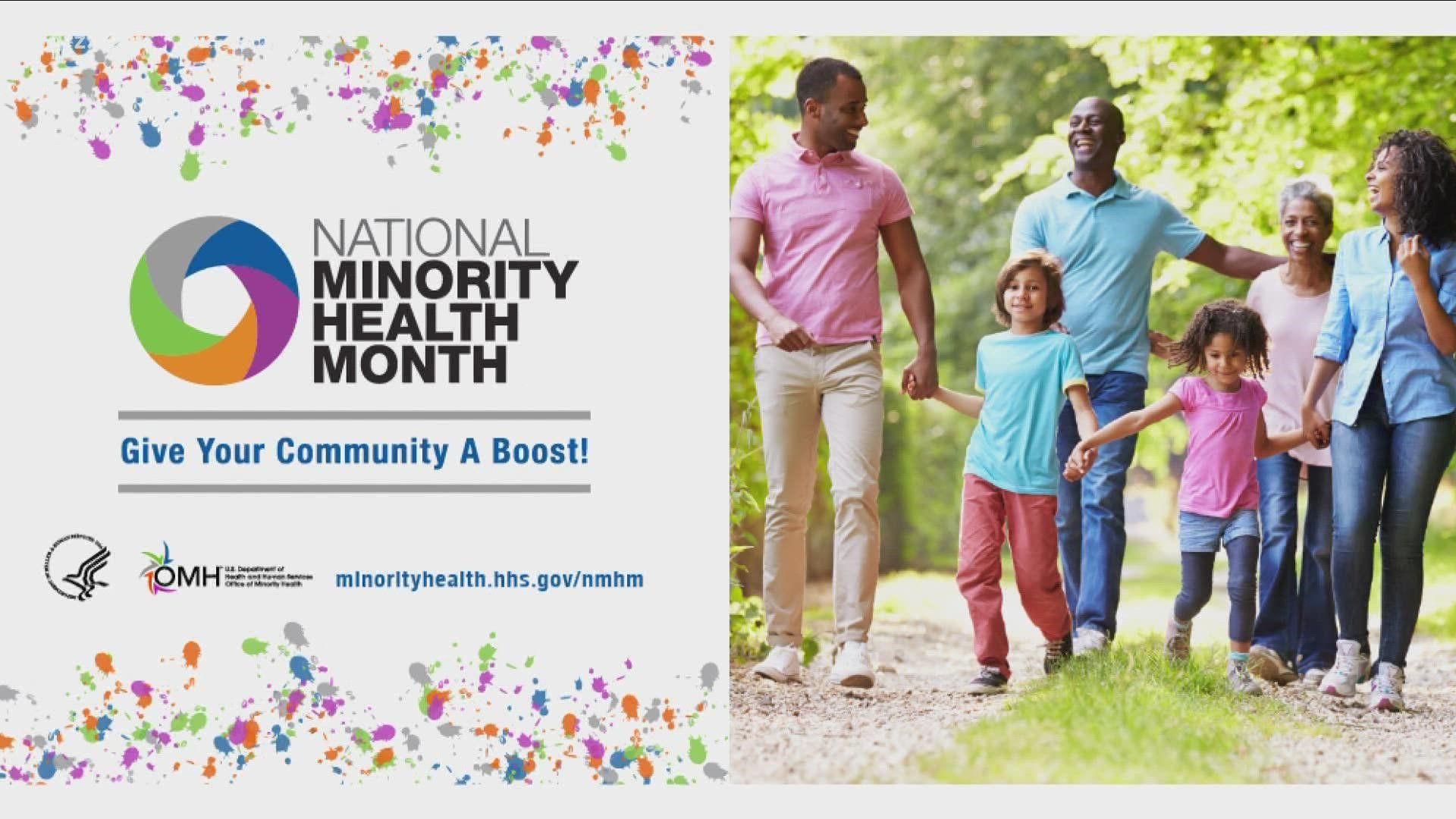BUFFALO, N.Y. — Conversations about the health disparities in communities of color have only intensified since the start of the pandemic.
COVID-19 has ripped the band-aid off this problem, shining a light on just how disproportionate the healthcare system is and historically has been.
The U.S. Department of Health and Human Services Office of Mental Health recognizes April as National Minority Health Month. Every April, the NIMHD and Office of Mental Health join federal agencies to better promote health education and raise awareness about health inequity in black and brown communities.
Dr. Chet Fox is the Chief Medical Officer at Urban Family Practice, on Buffalo's Westside, and says the low percentage of vaccination, booster, and testing rates in our communities of color are directly tied to the lack of primary care and medical representation in many of those neighbors.
"There's a lot of misinformation out there," Dr. Fox says. "You need a trusted source to get information from and a lot of the minority communities, their trusted source is the local emergency room. They don't have a primary care doctor."
Take the 14215 zip code, which is on Buffalo's East Side for example.
"You go in 14215, and you can't find any primary care doctors at all. And you now remember, if you don't have transportation, being a mile away from your doctor is too far," Dr. Fox emphasizes.
The theme of this year's National Minority Health Month is "Give Your Community A Boost!"
Dr. Fox says if you consider the many ways social determinants of health affect Black and Brown communities disproportionately then you would understand why their vaccination, booster, and testing numbers are still lagging behind.
"In terms of the boosters, only 41% of Hispanic population 44% of African Americans, but 58% of whites and 60% of Asians have gotten the booster."
So, how do we make changes?
Dr. Fox says conversations around public health need to change. As those conversations change, communities will start to see equitable access to care, better messaging, better programming, and more activities to promote health for all people.
RELATED STORY:

